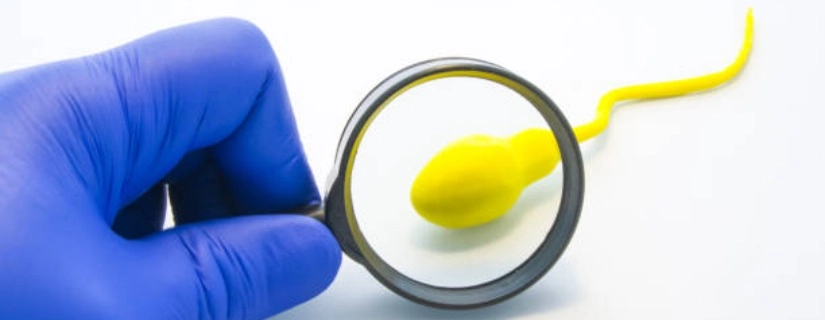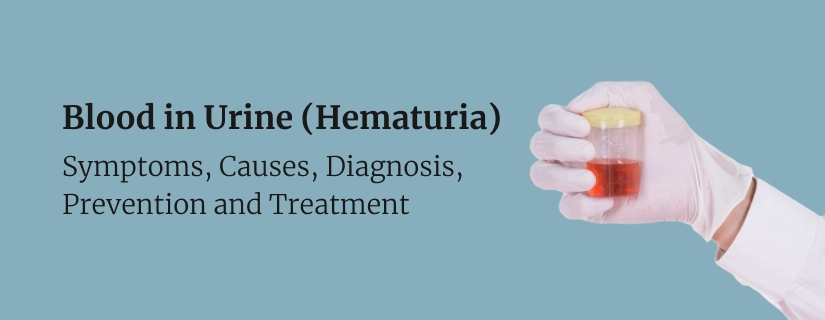-
Doctors
-
Specialities & Treatments
Centre of Excellence
Specialties
Treatments and Procedures
Hospitals & Directions HyderabadCARE Hospitals, Banjara Hills CARE Outpatient Centre, Banjara Hills CARE Hospitals, HITEC City CARE Hospitals, Nampally Gurunanak CARE Hospitals, Musheerabad CARE Hospitals Outpatient Centre, HITEC City CARE Hospitals, Malakpet
HyderabadCARE Hospitals, Banjara Hills CARE Outpatient Centre, Banjara Hills CARE Hospitals, HITEC City CARE Hospitals, Nampally Gurunanak CARE Hospitals, Musheerabad CARE Hospitals Outpatient Centre, HITEC City CARE Hospitals, Malakpet Raipur
Raipur
 Bhubaneswar
Bhubaneswar Visakhapatnam
Visakhapatnam
 Nagpur
Nagpur
 Indore
Indore
 Chh. Sambhajinagar
Chh. SambhajinagarClinics & Medical Centers
Book an AppointmentContact Us
Online Lab Reports
Book an Appointment
Consult Super-Specialist Doctors at CARE Hospitals
Foamy Urine: Symptoms, Causes, Treatment and Home Remedies
Updated on 17 July 2024

Have you ever noticed foam or froth in your urine? While it may seem harmless, foamy urine can be an indicative sign of an underlying health condition. Occasionally, foam while urinating is normal because urination speed and other factors can influence this, but you should consult your doctor if your foamy urine persists and becomes increasingly noticeable. This article aims to provide you with a comprehensive understanding of foamy urine, its causes, risk factors, diagnosis, and treatment options. By the end of this article, you'll better understand when to seek medical attention and what precautions and actions you can take to address this condition.
Frothy Urine Symptoms
Foam while urinating is characterized by the presence of excessive bubbles or foam in the toilet bowl or urine container. These bubbles can persist for an extended period, even after flushing or discarding the urine. Sometimes, the urine may appear cloudy or have a distinct odour. It's important to note that a small amount of foam or bubbles in the urine is considered normal, especially after strenuous exercise or dehydration.
If you suspect any underlying illness, look for other signs. These symptoms could be clues that a medical condition is causing the problem:
- Loss of appetite
- Nausea and vomiting
- Swelling in the hands, feet, and face
- Frequent urination
- Darker coloured urine
- Generalise weakness
Causes of Foamy Urine
Some of the froth in urine causes are:
- Protein in the Urine (Proteinuria): Excessive protein in the urine can cause it to become foamy. This condition can be a symptom of kidney disease, diabetes, or certain autoimmune disorders.
- Dehydration: When the body is dehydrated or has a lower-than-normal fluid level, the urine becomes more concentrated, increasing the likelihood of foam in urination.
- Kidney Disease: Conditions such as glomerulonephritis, nephrotic syndrome, and polycystic kidney disease can lead to foamy urine due to the presence of protein or other substances in the urine.
- Diabetes: Uncontrolled diabetes can damage the kidneys, resulting in proteinuria and frothy urine in men and women.
- Urinary Tract Infections (UTIs): Certain types of bacteria can produce enzymes that may cause the foam in urine in females.
- Medications: Medications, such as certain antibiotics, diuretics, and chemotherapy drugs, can contribute to foamy urine as a side effect.
Risk Factors
Several factors can make a person prone to passing out foamy urine, including:
- Chronic kidney disease (CKD)
- Diabetes
- Autoimmune disorders (e.g., lupus, rheumatoid arthritis)
- Urinary tract infections
- Certain medications
- Dehydration
- Strenuous exercise
Diagnosis of Foamy Urine
If you experience persistent foamy urine, consult a doctor for a proper diagnosis. Your doctor may recommend the following tests:
- Urine Analysis: This investigation can see the presence of protein, blood cells, or other substances in the urine that may contribute to foamy urine.
- Blood Tests: Blood tests can include renal (kidney) function tests (RFT), including serum creatinine and blood urea nitrogen (BUN) levels, electrolyte levels tests, and blood glucose tests, which can help assess kidney function and detect any underlying conditions causing foamy urine.
- 24-hour Urine Collection: Doctors may collect urine over 24 hours to measure the total amount of protein excreted.
- Imaging Tests: Doctors may recommend imaging techniques such as ultrasound or CT scans to evaluate the anatomy & physiology of the kidneys and urinary tract.
- Kidney Biopsy: Sometimes, a small sample of kidney tissue may be examined under a microscope to determine the cause of foamy urine.
Treatment for Foamy Urine
The treatment for foamy urine depends on the underlying cause. Here are some common treatment approaches:
- Addressing the Underlying Condition: If foamy urine is caused by a specific condition, such as diabetes, kidney disease, or a urinary tract infection, treating the underlying condition is crucial. The treatment may involve medications, lifestyle changes, or other interventions.
- Dietary Modifications: Doctors may recommend a diet low in protein and sodium for individuals with kidney disease or proteinuria to reduce the workload on the kidneys and minimize foamy urine.
- Medications: Your doctor may prescribe medicines to manage the underlying condition or reduce protein excretion in the urine.
- Fluid Management: Increasing fluid intake can help dilute the urine and reduce the concentration of substances contributing to foamy urine.
- Lifestyle Changes: Maintaining a healthy lifestyle, including drinking plenty of water, regular exercise, weight management, and avoiding smoking, can support overall kidney health and potentially reduce foamy urine.
When to See a Doctor
While a small amount of foam or bubbles in the urine is considered normal, persistent or excessive foamy urine may indicate an underlying health issue. Consult a doctor if you experience the following:
- Persistent foamy urine lasting more than a few days
- When foamy urine is with pain, burning, or blood in the urine
- Foamy urine in combination with swelling, fatigue, or other concerning symptoms
Home Remedy for Foam in Urine
While home remedies should not replace professional medical treatment, some natural approaches may help alleviate foamy urine or address underlying causes:
- Increase Fluid Intake: Drinking an optimal amount of water and staying well-hydrated can help dilute the urine and reduce the concentration of substances contributing to foamy urine.
- Cranberry Juice: Cranberry juice may help prevent or treat urinary tract infections, which can sometimes cause foamy urine.
- Herbal Remedies: Certain herbs, like dandelion root and stinging nettle, are believed to have diuretic properties and may help flush out excess substances from the body, potentially reducing foamy urine.
- Diet Modifications: Reducing your protein, sodium, and processed foods intake can help alleviate the workload on the kidneys and potentially reduce foamy urine.
Conclusion
Foamy urine can be a sign of an underlying health condition, ranging from dehydration to kidney disease or diabetes. While a small amount of foam is considered normal, persistent or excessive foamy urine should not be ignored. If you experience foamy urine, consult a doctor for exact diagnosis and treatment. Early intervention can prevent further complications and protect your overall health.

ENQUIRY FORM
SELECT CATEGORIES
-
Neurosciences (16)
-
Neurology (37)
-
Neurosurgery (14)
-
Orthopaedics (48)
-
Oncology (33)
-
Obstetrics and gynecology (51)
-
Pulmonology (23)
-
Urology (20)
-
Nephrology (13)
-
Psychiatry (7)
-
Dietetics and Nutrition (111)
-
General Medicine (63)
-
Cardiac Sciences (30)
-
Vascular & Endovascular Surgery and Interventional Radiology (10)
-
Gastroenterology (46)
-
Endocrinology (23)
-
Plastic Surgery (10)
-
Critical Care Medicine (5)
-
COVID-19 (16)
-
Dermatology (16)
-
Emergency Care (1)
-
Ophthalmology (4)
-
Pediatrics (14)
-
Laparoscopic and Bariatric Surgery (8)
-
ENT (15)
-
Kidney Transplant (1)
-
Liver Transplantation and Hepatobiliary Surgery (5)
-
General Surgery (3)
-
Internal Medicine (5)
-
Medicine Information
Leukocytes in Urine: Symptoms, Causes, and Treatment
Understanding Urinary Tract Infections in Men: Causes, Symptoms, and Prevention
YOU MAY ALSO LIKE
RECENT BLOGS
-

Direct Anterior Approach in Total Hip Replacement: Advantages and Challenges
10 April 2025
Read More
-

Zinc Deficiency: Signs and Symptoms, Causes, Treatment
9 April 2025
Read More
-

Chest Pain When Coughing: Causes, Treatment and Home Remedies
9 April 2025
Read More
-

12 Health Benefits of Eating Mushrooms
8 April 2025
Read More
-

7 Health Benefits of Blood Donation You Should Know About
8 April 2025
Read More
-

Implantation Bleeding Vs Periods: Know the Difference
28 February 2025
Read More
-

Bloating During Ovulation: Symptoms, Causes and Remedies
28 February 2025
Read More
-

Itching During Dengue: Causes, Treatment and Home Remedies
18 February 2025
Read More
Have a Question?
If you cannot find answers to your queries, please fill out the enquiry form or call the number below. We will contact you shortly.


















